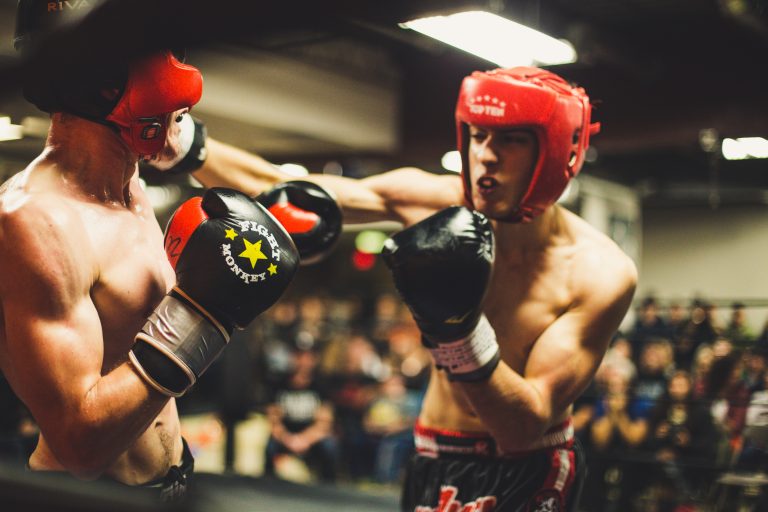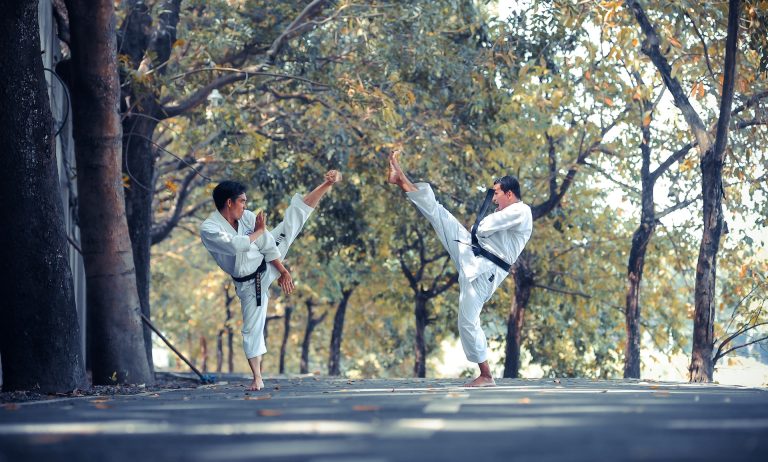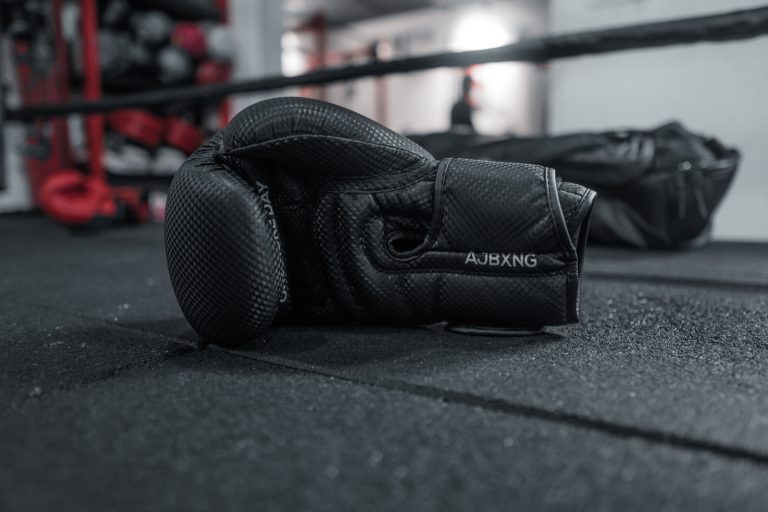Karate: Should Kids Under 10 Years Old Learn This Martial Art?
Karate is a martial art that is great for everyone, from children to adults. It can teach discipline, self-defense, and physical fitness. But there’s a debate about whether or not kids under 10 years old should learn karate. In this blog post, we’ll discuss the key issues and pros and cons of karate for young kids.
Karate is a centuries-old martial art that originated in Japan. It consists of blocks, strikes, and kicks which are used to defend oneself. There are various styles of karate, such as Shotokan, Wado Ryu, and Kyokushin, and most styles emphasize practical self-defense moves.
The Benefits of Karate for Kids
Let’s look at some of the advantages of karate for kids.
1. Physical Fitness
Kids need plenty of physical activity to remain healthy and strong. And karate is a great way to get in some physical activity that’s both fun and challenging. Karate helps kids build strength, endurance, coordination, and balance. It can also be a great way to burn off excess energy.
2. Self-Confidence & Self-Discipline
Karate can help kids learn the value of concentration and persistence. Since it’s a martial art that is based on rules, kids must adhere to these rules in order to progress and improve in their skills. This builds self-discipline and teaches kids that practice pays off. In addition, karate can help kids gain a sense of self-confidence as they improve and realize their own capabilities.
3. Self-Defense
Karate is also a great way for kids to learn some basic self-defense moves. The moves they learn can help them defend themselves against attackers if the need ever arises. Of course, the best defense is to avoid confrontation altogether, but it’s good to know some self-defense moves in case they are ever needed.
The Risks of Karate for Kids
Now let’s look at some of the potential risks of karate for kids.
1. Injury Risks
One potential risk is injury. Karate can be a contact sport, which means that there’s a risk of getting injured during classes or competitions. This is why it’s important for young children to be properly supervised during classes in order to reduce the risk of injury. In addition, children should be taught proper techniques so they don’t injure themselves or others. It’s also important for children to wear the appropriate protective gear, such as knee and elbow pads, when practicing karate moves.
2. Too Much Pressure
Another potential risk is that kids may be put under too much pressure to succeed or meet certain expectations. For example, some parents may push their kids too hard to win competitions or earn promotional belts in karate. This kind of pressure can take away from the fun and lead to frustration or even discouragement if it’s too much for the child to handle.
3. Unrealistic Expectations
It’s important for kids to understand that karate is not a quick fix or easy solution to any problems they may be having. Karate takes time and dedication to do well in, and some kids may not be able to keep up with the pace or take the time necessary to improve their skills. It’s important for children to have realistic expectations about what they can accomplish with karate and for parents not to set unrealistic expectations for their kids when it comes to participation in karate classes or competitions.
Should Kids Under 10 Years Old Learn Karate?
Weighing the pros and cons of karate for young children, it’s safe to say that karate can be beneficial for kids under 10 years old if they are properly supervised and taught the proper techniques. It can teach them physical fitness, self-confidence, and self-defense skills. However, it’s important to remember that there are potential risks involved as well, such as injury, pressure, and unrealistic expectations.
Ultimately, it’s up to parents to decide whether or not their children should participate in karate classes at an early age. If they decide to do so, they should look into finding a qualified instructor who emphasizes safety and teaches proper techniques and forms. In addition, parents should keep an eye on their children and make sure they’re comfortable with karate before allowing them to compete in tournaments or advance too quickly through different ranks or belts.
References:
[1] “Karate: A History and Introduction.” ThoughtCo., https://www.thoughtco.com/karate-history-overview-1960445
[2] “KARATE FOR KIDS: BENEFITS of KARATE FOR CHILDREN.” martialartsmart.com http://www.martialartsmart.com/karate/benefits-of-karate-for-kids/
[3] “Karate for Kids — Pros & Cons.” SportsRec., https://www.sportsrec.com/7947612/karate-for-kids-pros-cons
Karate: Should Kids Under 10 Years Old Learn This Martial Art?
When it comes to martial arts for children, parents often ask whether it is a good idea to enroll their kids in karate training. Karate is one of the most popular martial arts around the world, but is it safe and beneficial for kids under 10 years old? This blog post will address some of the most frequently asked questions about karate and young children.
What Is Karate?
Karate is a martial art that originated in Okinawa, Japan, and has since spread throughout the world. It involves striking, kicking, and blocking using different parts of the body. Karate is a discipline that can improve not only physical fitness but also mental focus and self-confidence.
What Are The Benefits Of Karate For Kids Under 10?
Karate training can have many benefits for children under 10 years old, including:
1. Physical Fitness:
Karate can help children to develop better balance, coordination, flexibility, and strength. Through practicing katas and sparring, they can improve their reflexes, speed, and agility.
2. Discipline And Focus:
Karate is a disciplined martial art that requires students to follow strict rules and practices. Through learning and practicing karate, kids can develop self-discipline, focus, and concentration. These skills can be applied not only in karate training but also in other areas of their lives such as school and home.
3. Self-Defense:
Karate can teach children how to defend themselves in potentially dangerous situations. Through controlled sparring and self-defense drills, kids can learn how to react to different scenarios and develop confidence in their abilities to protect themselves.
4. Self-Confidence:
Karate can help children to build self-confidence, self-esteem, and respect for themselves and others. Through achieving belt ranks and mastering techniques, kids can feel a sense of accomplishment and pride.
5. Social Skills:
Karate classes can provide a social environment where children can meet new friends and interact with other students. They can learn how to work together with other students, follow instructions from instructors, and show respect for their classmates.
What Are The Risks Of Karate For Kids Under 10?
While karate can have many benefits for children, it is important to be aware of the potential risks involved, including:
1. Injury:
Karate involves physical contact, and injuries can occur during sparring or training. Broken bones, sprains, and strains are some of the most common injuries in karate. However, proper supervision and training can help to minimize these risks.
2. Overtraining:
Children under 10 years old may be more susceptible to overuse injuries and burnout when practicing karate. It is important for parents and instructors to monitor their training and ensure that they are not overtraining.
3. Psychological Impact:
Karate training can be challenging and demanding, and some children may feel discouraged if they do not progress as quickly as they hoped. It is important for parents and instructors to provide positive reinforcement and support to help children develop a growth mindset.
What Should Parents Look For In A Karate Program For Kids Under 10?
When considering enrolling their child in a karate program, parents should look for the following:
1. Qualified Instructors:
The instructors should be certified and have experience working with young children. They should be able to create a safe and positive learning environment for their students.
2. Focus On Fun And Learning:
The focus should be on fun and learning rather than competition and winning. The program should have a curriculum that emphasizes teaching techniques, safety, and self-defense in a fun and engaging way.
3. Emphasis On Safety:
The program should have safety guidelines that are strictly enforced. The instructors should teach proper technique and safety precautions to prevent injury.
4. Age-Appropriate Classes:
The program should have classes that are specifically designed for children under 10 years old. The classes should be tailored to their age group and developmental stage.
Conclusion
Karate can be a safe and beneficial martial art for children under 10 years old, as long as it is taught in a safe and structured environment. It can teach kids physical fitness, discipline, self-defense, and self-confidence while also providing a fun and social experience. However, it is important for parents to be aware of the potential risks involved and to choose a program that is suitable for their child’s age and skill level.
Inhaltsverzeichnis






